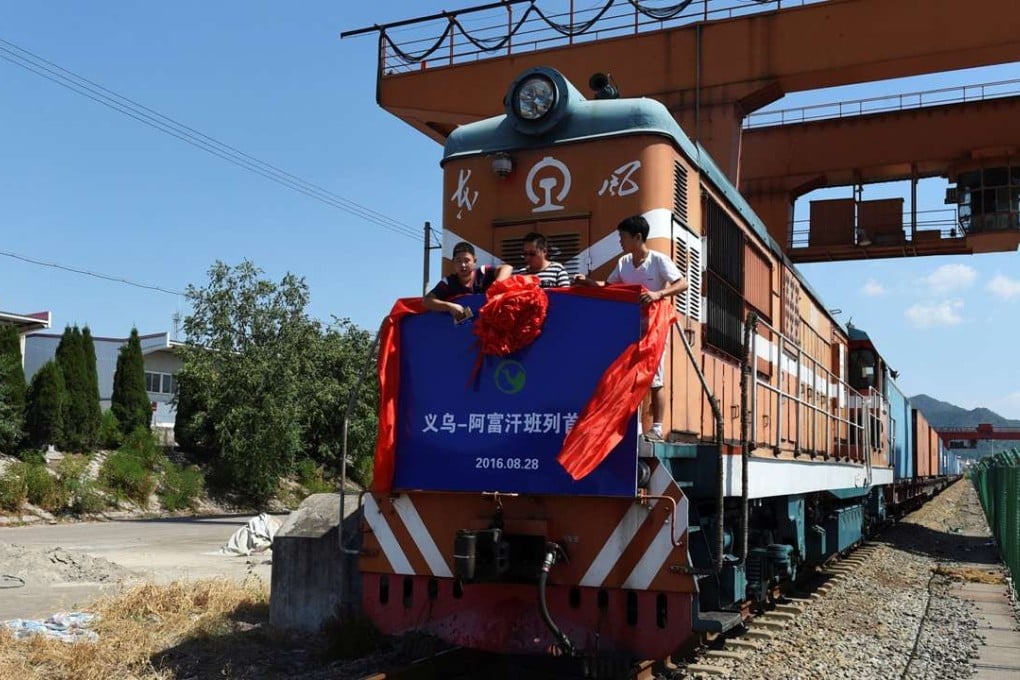All aboard for ‘One Belt, One Road’? Afghanistan freight train trip one stop in China’s bigger drive

When a Chinese train pulled into a station in northern Afghanistan late last month, it did more than deliver a load of textiles and freight.
The vehicle and its cargo had completed a 13-day, 7,000km trip to Hairatan via Kazakhstan and Uzbekistan, signalling China’s renewed efforts to unite the region through its transport and infrastructure plan called “One Belt, One Road”.
The strategy, floated by President Xi Jinping in 2013, is gaining momentum while Washington’s New Silk Road initiative, proposed by former secretary of state Hillary Clinton in 2011, is going nowhere.
China’s ambassador to Afghanistan, Yao Jing, was on hand as the train arrived and described the journey as symbolic of Beijing and Kabul’s shared goal to deepen their “strategic” partnership, according to a statement on the embassy’s website.
But just like the train’s zigzag route, business between the two countries does not follow a straight line.